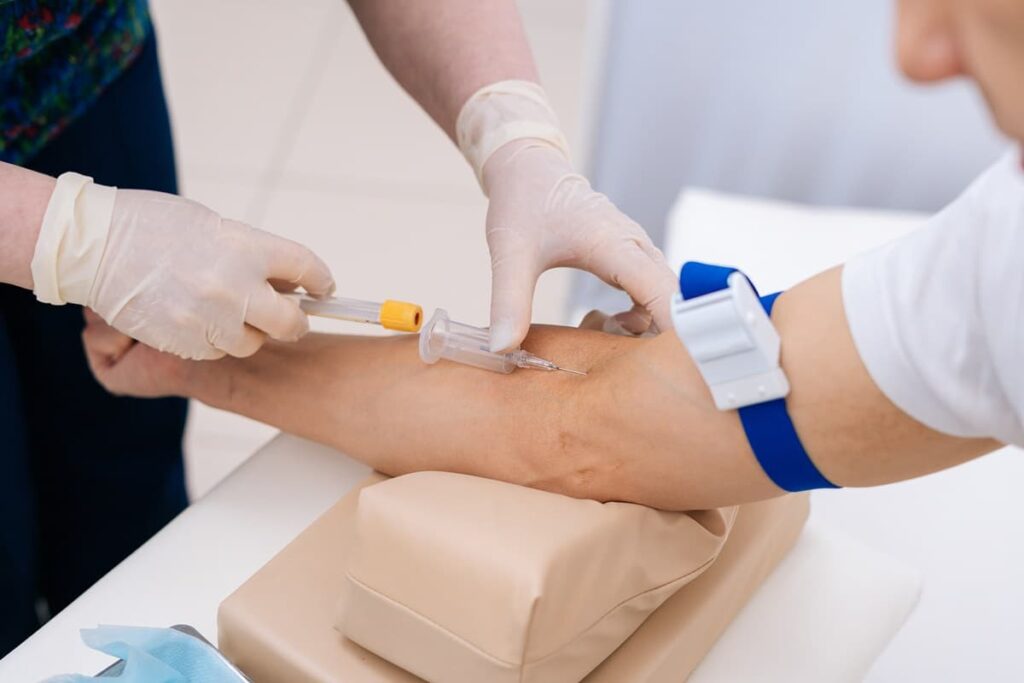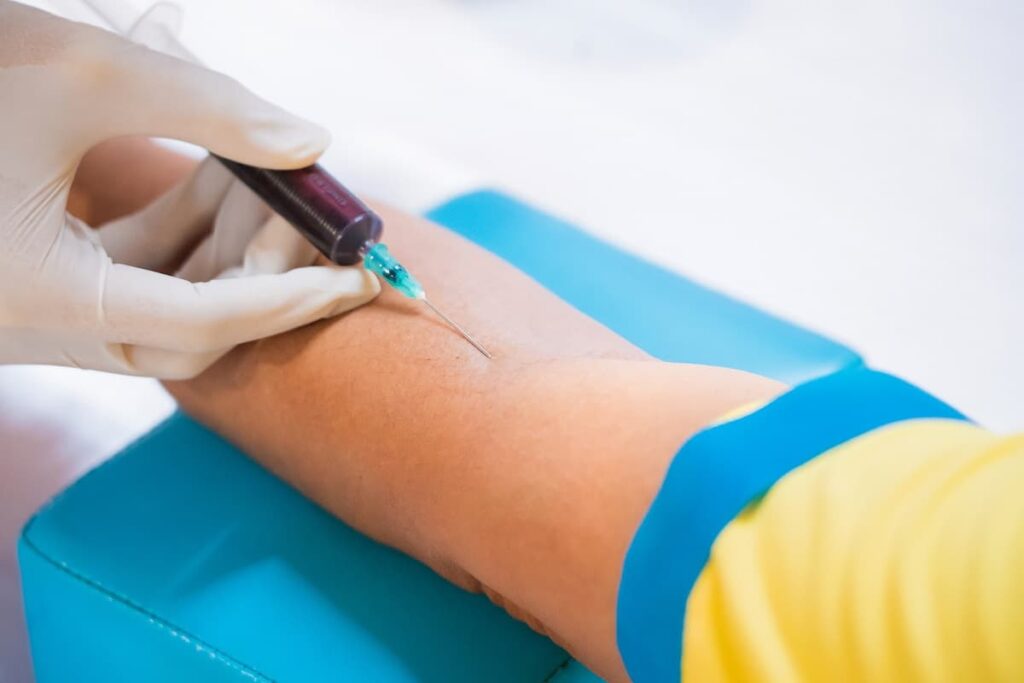Is Freenome a Leading Cancer Blood-Testing Company?
Table of contents

The meltdown of the cryptocurrency exchange FTX is just the latest reminder that it can take time – and billions of dollars lost – to catch fraud, even when there are more red flags waving than in a Russian parade. For starters, any company flying its flag from the Bahamas should at least raise an eyebrow. And, in hindsight, the whole “effective altruism” schtick seemed like a way to capitalize on a trend, since “greed is good” is obviously too 1980s and antithetical to the current woke zeitgeist.
Similarly, the downfall of another tech wunderkind, Elizabeth Holmes, and the blood-testing startup Theranos should have happened much earlier, but lots of smart, deep-pocketed people proved they could be bamboozled like the rest of us. Last month, Holmes was sentenced to more than 11 years in prison followed just this past week by her ex-lover and chief operating officer, Ramesh “Sunny” Balwani, who received a nearly 13-year sentence. These are good reminders why risk-averse retail investors should proceed on facts rather than fanciful stories about or from larger-than-life personalities.
Another Startup from Ark Venture Fund
Cathie Wood of Ark Invest is one of those people who has attracted something of a following (and billions of dollars), despite being on a losing streak that started before the current market downturn. While Wood is certainly no fraud, it’s hard not to think that the firm is starting to churn out funds just for the fun of it. Her most recent product, the Ark Venture Fund, offers retail investors an opportunity to nominally invest in startups. While we like the idea, we’re not too thrilled that the portfolio also mixes in a number of Ark Invest’s favorite public tech companies, like Zoom, DraftKings, and Roku – none of which is an interesting play for us. In fact, only a third of the Ark Venture Fund portfolio features private companies.

So far, we’ve covered two of the top three holdings – Twitter and Epic Games. The former is now run by a personality who is perhaps all too real for some, while the latter is a direct competitor to one of the stocks in our Nanalyze Disruptive Tech Portfolio. Our main reason for covering the third of the biggest holdings in the Ark Venture Fund, blood-testing startup Freenome, in the rest of this article is that it also competes with our favorite blood-testing company, Guardant Health (GH).
About Freenome
Let’s establish something right from the start: Freenome has nothing to do with giving away garden gnomes. Disappointing, we know. Instead, the San Francisco Bay Area-based startup is developing a blood test to screen for colorectal cancer. It has amassed at least $1.1 billion in funding from 50 different investors since 2014. It’s quite a list, so we’ll just highlight a few names: Roche, Kaiser Permanente, Andreessen Horowitz, Novartis, Google, T. Rowe Price, Fidelity, etc. etc. – often on multiple rounds. The company is currently valued at $2.6 billion by the big brains at CB Insights.
The most recent infusion of cash came earlier this year from Roche, which plunked down $290 million. The multinational Swiss biotech company is certainly a potential suitor down the road. In 2018, it acquired Foundation Medicine, a company leading the way in genomic detection of cancer through blood tests or liquid biopsies using next-generation sequencing (NGS).

The co-founders of Freenome aren’t exactly household names but certainly have some credibility. Co-founder Ennis Riley reputedly developed a cancer vaccine and founded his first biotech company, Immudicon, while still in high school. We got stoned before high school typing class (explains the occasional typo). He worked at Novartis as a scientist and at Morgan Stanley as an analyst. The company’s other co-founder, Charlie Roberts, previously co-founded Yourgene Health (YGEN.L), which uses a liquid biopsy to detect chromosomal abnormalities during pregnancy. We covered quite a bit of these non-invasive prenatal testing (NIPT) companies back in the day, including Yourgene when it was called Premaitha Health. Eventually, we lost interest in the theme, and Yourgene’s current $18 million market cap (despite nearly $47 million in 2021 revenue) would seem to somewhat justify that decision.
Freenome and Screening for Colorectal Cancer
However, the market potential for early cancer detection has a much higher ceiling, given the cost of cancer care in the United States is about $200 billion. Currently, the medical-powers-that-be only recommend routine screening for just four cancers: breast, cervical, colorectal, and lung. However, cancers without recommended screening tests account for 71% of cancer deaths in the United States.

Freenome is initially focused on colorectal cancer, which is the third-most common cancer worldwide. While colonoscopies are an effective screening tool, the invasive procedure is expensive, and patients must be sedated and risk a perforated colon in the process. Freenome’s so-called multi-omics blood test analyzes both tumor and non-tumor signals from DNA and proteins, and then applies machine learning to detect the cancer. The company claims its technique is more accurate because non-tumor signals, such as proteins from the immune system or from tissues surrounding the tumor, may contribute more significantly in earlier stages of cancer. One clinical study demonstrated that Freenome’s platform detected early-stage I/II colorectal cancer with a sensitivity of 94% and specificity of 94%.

The company has now enrolled more than 30,000 people in its biggest clinical trial to date, but does not currently have a Food and Drug Administration (FDA)-approved product. It has also started recruiting for two other large clinical trials to prove its technology for multiple cancers as well. In other words, Freenome is a clinical-stage, pre-revenue company without a commercial product. These are the sorts of companies that we automatically avoid if they are publicly traded – yet Freenome currently accounts for 9% of ARK Venture Fund’s portfolio.
Competition for Cancer Tests
Freenome also already faces some pretty stiff and advanced competition in the cancer blood-testing arena, starting with Guardant Health. Its flagship product, Guardant360, is a liquid biopsy test that helps guide treatment decisions for patients with advanced-stage cancer. So GH has proven it can bring a product through the FDA approval process to market. The company is also developing a stand-alone colorectal screening test for which it is currently conducting a large-scale clinical study.

A company that we’ve liked for a while, Exact Sciences (EXAS), has already developed an FDA-approved non-invasive stool DNA screening test for colorectal cancer called Cologuard. Last year, it got into the liquid biopsy business by acquiring Thrive Early Detection for up to $2.15 billion in cash and stock. Thrive’s early-stage cancer screening test uses mutation and protein biomarkers to detect 10 different types of cancer, including seven with no recommended screening guidelines. Incidentally, Exact Sciences is one of 16 publicly traded companies included in the Ark Venture Fund, though it only accounts for a 1.55% weighting.
Another key player is GRAIL, which developed a platform that screens for 50 different cancers in people before they become symptomatic. Spun-off and then re-acquired by Illumina in a deal that European Union regulators are likely to break up, GRAIL has apparently already achieved the Holy Grail of creating a pan-cancer genomics test that can reportedly identify the location of the detected cancer with 89% accuracy. While not yet approved by the FDA, the company is building its case by enrolling 20,000 patients in a clinical trial.
Conclusion
Freenome certainly has a lot of momentum and money behind it, but the path to profitability for this pre-revenue biotech company is anything but assured, especially given all the competition in this space. At the moment, it is an extremely expensive R&D experiment with an uncertain payoff. Its presence, let alone prominence, in the Ark Venture Fund seems like an extremely risky bet. As risk-averse investors, we would want to see a more balanced portfolio with commercial-stage companies enjoying significant revenues and market penetration. That’s not Freenome.
Sign up to our newsletter to get more of our great research delivered straight to your inbox!
Nanalyze Weekly includes useful insights written by our team of underpaid MBAs, research on new disruptive technology stocks flying under the radar, and summaries of our recent research. Always 100% free.
















Great info and I love the sense of humor. I always get one or two belly laughs out of your reports. Sometimes it is more but I don’t want you to get a big head, or start having dreams of doing standup.
😉 Really appreciate that Jason! Most people enjoy it, a small number complain, but it’s most important that we have fun! Finance can be dreadfully boring and stuck up so we like to go against the grain. Appreciate you taking the time to leave feedback!